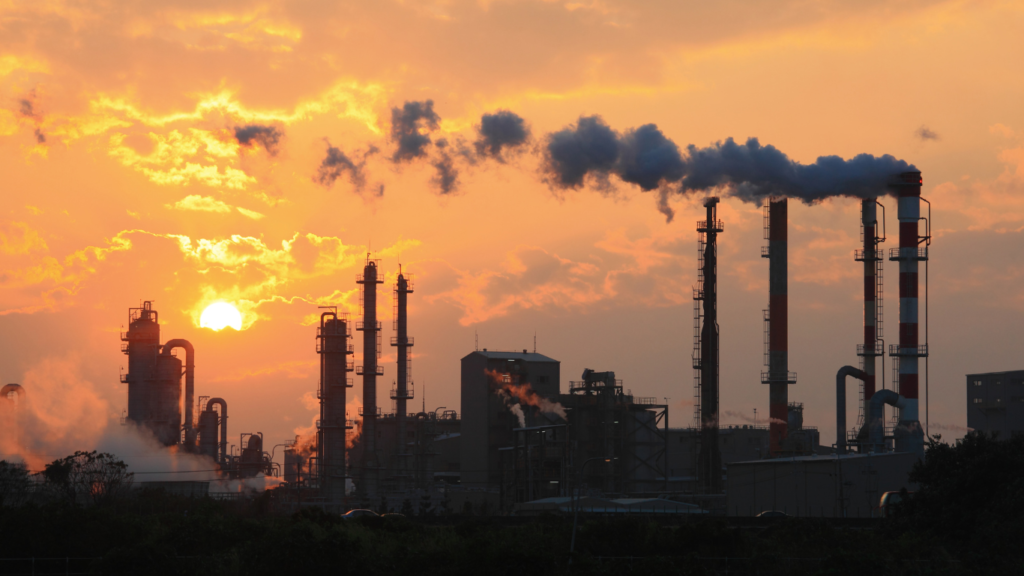Introduction
The global demand for vegetable oils relies heavily on edible oil plants, which play a crucial role in their production. However, these plants often face environmental concerns and resource depletion due to the substantial wastewater generated during production processes. To combat these challenges, many edible oil plants are increasingly embracing Zero Liquid Discharge (ZLD) systems. In this blog, we will delve into the significance of ZLD in edible oil plants and how it effectively maximizes efficiency while minimizing waste. By implementing ZLD, these plants can ensure that no liquid waste is discharged, addressing environmental concerns and conserving precious resources
The Edible Oil Industry and Wastewater Generation
The edible oil industry plays a significant role in the global food processing sector, involving a range of processes from crushing and extraction to refining and packaging in order to produce edible oils. However, these processes result in the generation of large volumes of wastewater containing organic compounds, suspended solids, and chemical contaminants. Discharging this untreated wastewater poses substantial environmental risks, including the pollution of water bodies, adverse effects on aquatic life, and soil contamination. To mitigate these risks, proper treatment of the wastewater is crucial. Implementing effective wastewater treatment measures, such as Zero Liquid Discharge (ZLD) systems, becomes imperative to ensure the sustainability of the edible oil industry while safeguarding the environment and human health.
Get in Touch with us Today for Zero Liquid Discharge
The Need for Zero Liquid Discharge
Zero Liquid Discharge (ZLD) is an advanced water treatment approach that eliminates the discharge of liquid waste from industrial processes. In edible oil plants, implementing ZLD systems offers multiple advantages. Firstly, it conserves water resources by recycling and reusing treated water, reducing the strain on freshwater sources. Secondly, ZLD mitigates the environmental impact by preventing the release of pollutants into surrounding ecosystems. Lastly, it ensures compliance with strict regulatory requirements for wastewater treatment and discharge. By adopting ZLD, edible oil plants can achieve efficient water management, environmental sustainability, and adherence to regulatory standards.
Scaleban Technology for Edible Oil Plants
The application of Scaleban technology can bring significant benefits to edible oil plants aiming for Zero Scale & Zero Liquid Discharge (ZLD). By installing Scaleban in their cooling circuit just before the HE and condensers, can eliminate the risk of scaling completely despite running the cooling tower on high COC and thus helps in better recovery of the hexane and also for their water treatment processes plants can optimise their ZLD objectives in a sustainable and cost-effective manner, without the need for costly conventional technologies like reverse osmosis (RO) and evaporators
Get in Touch with us Today for Zero Liquid Discharge
Scaleban technology enables the direct use of ETP treated wastewater in cooling towers instead of freshwater, without compromising plant performance. This allows for the efficient treatment of water while maximizing water conservation efforts. By implementing Scaleban, edible oil plants can operate their cooling tower circuits at high cycles of concentration (COC) of 15-20 and handle high total dissolved solids (TDS) levels of 25%-30%, ensuring scale-free, corrosion-free, and biofouling-free operations throughout the entire cooling tower circuit, including condensers and heat exchangers.
The advantages of Scaleban over conventional technologies like wastewater RO and evaporators are numerous. Firstly, Scaleban offers significant savings in both capital expenditure (CAPEX) and operating expenditure (OPEX) of up to 80%. This cost-effectiveness allows edible oil plants to achieve their ZLD objectives without incurring excessive expenses. Additionally, Scaleban does not require energy to operate, resulting in reduced carbon emissions and addressing environmental concerns.
Scaleban technology boasts a zero footprint as online equipment, requiring minimal space for installation. Its quick return on investment (ROI) within 12-18 months makes it an attractive choice for edible oil plants seeking efficient water treatment solutions. The equipment itself has a long lifespan of 20 years, ensuring long-term reliability and performance.
UN Sustainability Goals
Scaleban technology aligns with two important United Nations Sustainable Development Goals (SDGs) – Goal 6: Clean Water and Sanitation, and Goal 14: Life Below Water.
Under Goal 6, which focuses on ensuring the availability and sustainable management of water and sanitation for all, Scaleban contributes to the promotion of clean water. By enabling the direct use of wastewater in cooling towers, Scaleban helps optimize water treatment processes in a sustainable manner. This approach reduces the reliance on freshwater resources, conserves water, and promotes responsible water management. Scaleban’s ability to prevent scaling, corrosion, and biofouling in the water treatment process ensures the availability of clean water for industrial applications, supporting the achievement of SDG 6 targets.

Regarding Goal 14, which aims to conserve and sustainably use the oceans, seas, and marine resources, Scaleban plays a role in protecting life below water. By minimizing the discharge of liquid waste through its Zero Liquid Discharge (ZLD) approach, Scaleban reduces the release of pollutants into the environment. This helps to prevent water pollution, which can have detrimental effects on marine ecosystems and aquatic life. By adopting Scaleban technology, industries, including edible oil plants, can contribute to the preservation and sustainability of marine resources, aligning with SDG 14.
Conclusion
Implementing Zero Liquid Discharge (ZLD) systems is crucial for ensuring the sustainability and environmental responsibility of edible oil plants. By adopting ZLD, these plants can optimize efficiency, conserve water resources, minimize waste generation, and adhere to regulatory standards. Embracing ZLD is not only a responsible decision but also a strategic investment in the long-term viability of the edible oil industry. With ZLD, edible oil plants can achieve a more sustainable operation, reduce their environmental footprint, and demonstrate their commitment to responsible resource management.
